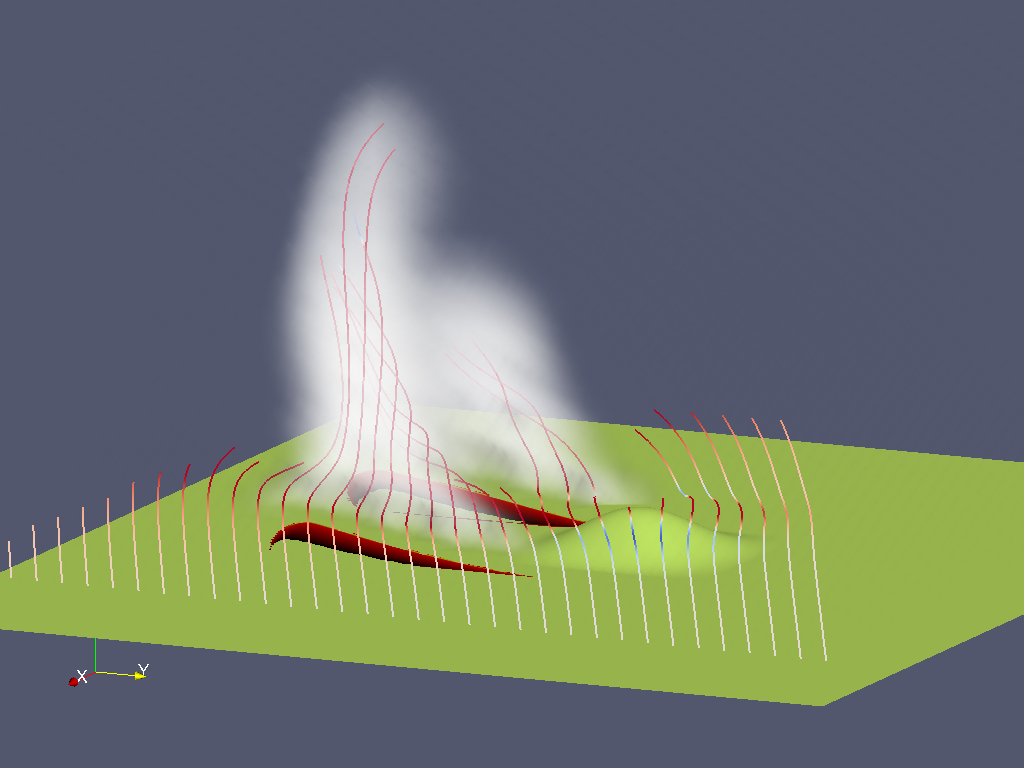Difference between revisions of "Coupling with WRF-Chem"
Jump to navigation
Jump to search

(Describing chem support) |
|||
| Line 5: | Line 5: | ||
==Compiling with chem support== | ==Compiling with chem support== | ||
| + | Compiling the code with support for WRF-Chem is similar to the [[How to compile WRF-Fire|standard procedure]]. | ||
| + | You must set an environment variable <tt>WRF_CHEM</tt> and configure with the argument <tt>chem</tt> as follows. | ||
| + | <pre> | ||
| + | export WRF_CHEM=1 | ||
| + | ./configure chem | ||
| + | ./compile em_fire | ||
| + | </pre> | ||
==Running an idealized example== | ==Running an idealized example== | ||
==Development notes== | ==Development notes== | ||
Revision as of 23:37, 21 April 2012
As of WRF 3.4, WRF-Chem is now included in the SFire repository. Work into coupling SFire with WRF-Chem is ongoing. See branch chem. As of April 21, 2012, a working template has been implemented to inject a tracer into the atmosphere. This implementation seems to work as expected.

SFire smoke tracer in action. See File:Smoke small.avi.
Compiling with chem support
Compiling the code with support for WRF-Chem is similar to the standard procedure. You must set an environment variable WRF_CHEM and configure with the argument chem as follows.
export WRF_CHEM=1 ./configure chem ./compile em_fire